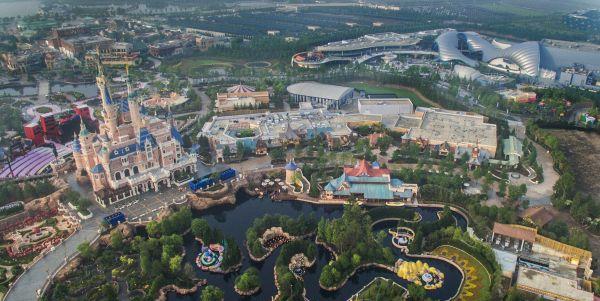Reference News Network reported on June 25 that for many years, Ding Man and Peng Peng have been entertaining audiences with Brooklyn accents on Broadway. But in China, the dialogue between Ding Man and Peng Peng is not only Chinese, but also has a bit of a northern accent.
According to the New York Times website reported on June 17, the flawed Chinese accent is one of the main localization elements integrated into the Mandarin version of the musical "The Lion King", which is being staged at the 1,200-seat Walt Disney New Theater. Shanghai Disneyland, with a total investment of $5.5 billion, officially opened on the 16th, and the theater is its finale.
Among the audience attending the premiere on the 14th, there were many executives of The Walt Disney Company, including the current chairman and CEO Robert Iggy. In addition, celebrities such as local Chinese officials and former NBA star Yao Ming also attended the premiere.
According to the report, in order to enhance the effect of this musical, the producers also added some other local elements, such as different dialects, Chinese pop song skewers, and for the first time added a new character - monkey master.
Musical theater director Julie Tymer said in an interview the day before the premiere: "Monkey King is the most popular character Chinese. These heart-to-heart touches are absolutely a must-do. It will make the musical recognized by the audience. "The Monkey Master wears a red-and-yellow costume designed by Tymer and inspired by Chinese culture. Although the Monkey Master can't speak, he steps up in several action scenes to defend the Lion King protagonist, Simba.
Since its premiere on Broadway in 1997, The Lion King has been translated into eight languages, including Japanese, Portuguese and Chinese. In each translation, the producers, while retaining the spirit of originality, have always tried to adapt the script to the local culture. All in all, the musical "The Lion King" has attracted $7.2 billion at home and abroad.
For Shanghai Disneyland, the localization of musical scripts that will win the Broadway box office has always been a top priority. Disney executives have repeatedly stressed that they will create an amusement park that is "both original Disney style and Chinese cultural characteristics."
Throughout Shanghai Disneyland, Chinese elements can be found everywhere. For example, the iconic restaurant Man Yue Xuan features a dining room representing different parts of China. The restaurant is said to be a tribute to the "fickle creative spirit" of Chinese poetry. In the Garden of Twelve Friends, there are twelve large mosaic murals that vividly depict Disney animated characters incarnated as the Chinese Zodiac.
But works with "Chinese characteristics" still face great difficulties in winning in China. The producers of "The Lion King" said that Chinese audiences were very confident that they would find Chinese elements seamlessly integrated into the musical.
Felipe Gamba, director of international products and strategy at Disney Theatre Group, said discussions about bringing a Mandarin version of The Lion King to China began in 2011, the same year that the company's executives held a groundbreaking ceremony for Shanghai Disneyland. The company also decided to build a theater as the finale to the amusement park. Gamba said that after hours of discussion, it was "clear" that "The Lion King" became the option. In 2006, the company held a tour of the English version of the musical in Shanghai with great success.
Soon after, Disney began looking for actors in China who could act, sing and dance. But finding the right actors in China has proved too difficult, as Broadway musicals are still relatively new. At this time, the earlier adaptation of "Cat", "Mama, Mia! The experience of other musicals came in handy. But Chinese actors are generally affiliated with film companies and schools, which limits their ability to pick up jobs outside. Gamba said Disney is considered an entertainment company in China, so that doesn't work.
Gamba said the timing of the show for "The Lion King" and future repertoire at the theater will depend on the musical's box office. (Compilation/Wu Mei)

Profile photo: Shanghai Disneyland taken aerialally on June 15.